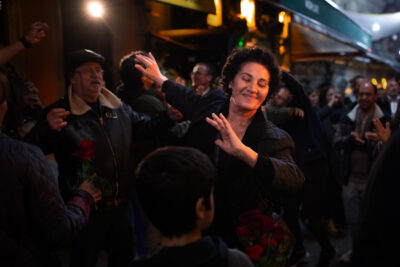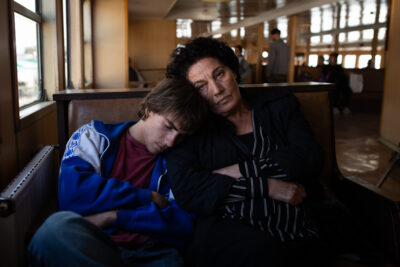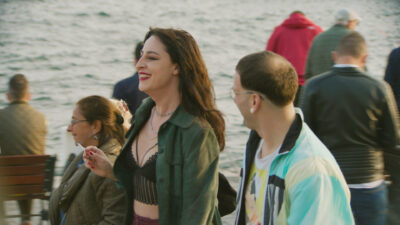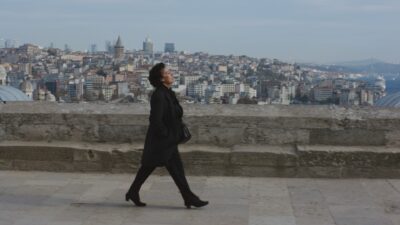“A piercing portrait of forgiveness across generations…Dumanli, making her screen feature debut here, is a pure joy to watch, enveloping the movie in a sense of warm coziness and safety as, just being in her presence, you feel like everything will somehow work out.” ~ Ryan Lattanzio, indieWire
“It’s seductive, fragmented, involving.” ~ Fionnuala Halligan, Screen International

“Akin makes a calculated choice to raise awareness of the trans community in Istanbul, but he does so through representation rather than manipulation.” ~ Peter Debruge, Variety
“This novelistic drama takes time to connect its central triangle but does so with a suppleness and restraint that amplify the emotional rewards of its lovely open-ended conclusion.” ~ David Rooney, Hollywood Reporter

Director’s statement: With Crossing I set out to make a film about solidarity and finding the small gestures of kindness and understanding between strangers and family alike. I also wanted to show rooms and places that are rarely explored in stories from the region.
The film is based on a true story I was told whilst researching And Then We Danced, about a grandmother traveling from Georgia to Turkey in search of her trans granddaughter. Just like with my previous film, making Crossing was very challenging. The existence of LGBTQ+ people in Georgia and Turkey is under large pressure and Turkey’s president Erdogan ran most of his recent presidential campaign around anti-LGBTQ+ rhetorics.

In my film we follow retired schoolteacher Lia who is looking to fulfill her recently deceased sister’s dying wish – to find her lost trans daughter, Tekla. Together with a down on his luck young man, Achi, who claims to have Tekla’s address in Istanbul, she travels from Georgia to Turkey to find her niece. Lia and Achi are from different generations and as such don’t have much in common even though they live in the same country. There is a great divide of ideology in Georgia between the Soviet and the post-Soviet generation. Achi desperately wants to leave Georgia as he lives under the oppressive rule of his older brother and he knows there is no future in Georgia for his young western leaning generation.
As the journey unravels, so does Lia. Through her relationship to Achi and her encounters with the trans community in Istanbul, specifically with Evrim (a trans woman who works as a lawyer for an NGO in Istanbul), Lia begins to open up and see the world and her place in it differently. All three main characters have made great sacrifices in limiting their lives and inhibitions in order to not upset the ruling hegemony.

I myself am Georgian born in Sweden (my ancestry is from Batumi), and I have ties to Turkey (both my parents were born there). The journey from Batumi in Georgia, along the Black Sea to Istanbul is a journey I have taken many times myself as a child. I am a mix of many cultures, traditions and norms and the themes of modernity versus tradition are very personal and something I have struggled with myself. I drew a lot from my own experiences, asking myself if my grandparents were living today, would they accept me for who I am? Probably not – but in showing these examples of acceptance I hope to inspire new ways forward.
